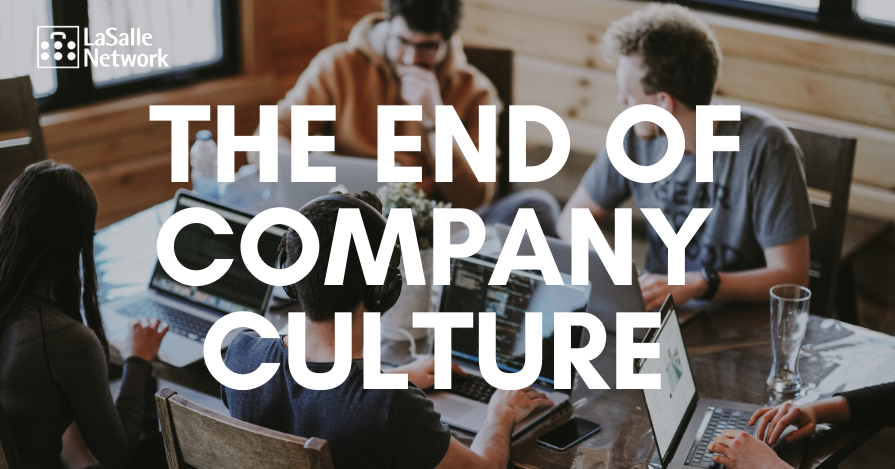As we look toward the future of work, it’s clear the environment of many offices will change significantly, perhaps forever. While preparing to return to the workplace in the new normal, it is essential companies look not only at structural changes that will come as a result of the pandemic, but also at how company culture will shift to accommodate the new economic and social environment.
Working through a crisis as a part of a team with a common goal has forever changed the relationship between employee and company. The lack of in-office perks has stripped company culture to become dependent on cultivating true connection. The enticing culture of catered lunches, kegs and pool tables is no longer a differentiator and culture will instead become a culmination of the vulnerability and intentionality both leadership and staff are willing to give.
Since March when COVID-19 swept North America, and states began implementing shelter in place mandates, companies and employees have either embraced their culture and adjusted it to fit their current environment or it has felt forced and fell flat. While working from home, employees let coworkers and clients into their homes virtually. They introduced them, willingly or not, to their families, roommates and pets. Team members supported one another through major life events such as illness or death of family members, caring for and teaching children while working from home, canceled weddings, and welcoming new children into the world. The company culture of the future will center around the authentic connection and support that was and will continue to be essential while working through the pandemic.
Teams that were once just coworkers became confidants as they experienced vulnerability and raw emotion while navigating through crisis together. Elements of mental health that once felt taboo to speak about in a professional setting were shared with peers or managers. This acknowledgement of mental health as a vital component to employee engagement will likely spark new policies and company-led support of holistic wellbeing. Wellness centers, morning meditations or other wellness programs companies began offering during the pandemic are likely to continue.
Rather than the enticing in-office perks of the past, companies will embrace flexibility. As work and life were blended during shelter-in-place, employers became more keenly aware of the challenges employees face while balancing their personal and professional lives. Companies will value results over the hours an employee spends in the office, and support an employees’ need to make time for health, family and self-care.
As coworkers have interacted with one another more personally while working from home, many teams have fostered a more casual, family feeling. Coworkers have shared a screen with their kids or pets in the background and adjusted schedules to account for E-Learning or caring for a family member. They have relied on one another to collaborate on projects or pivot their responsibilities. This blending of personal and professional environments is likely to continue as companies emphasize connection and authenticity.
While faced with new challenges and constraints, companies relied on the creativity and innovation of their employees. The new enticing company culture of the future will emphasize creative problem solving and encourage employees at every level of the business to share fresh perspectives and ideas.
Connecting with coworkers and customers in a genuine way during this experience has allowed for more authenticity in business. Companies who found unique ways to work together despite the physical distance will foster an interconnected and intentional culture back in the office as well. The new norm for culture will set organizations apart by demonstrating to employees, clients, customers and the community how they will continue to adapt and remain flexible in a rapidly changing economic landscape.
We’re here to support you in your staffing needs, whenever you’re ready. Let’s get connected.




